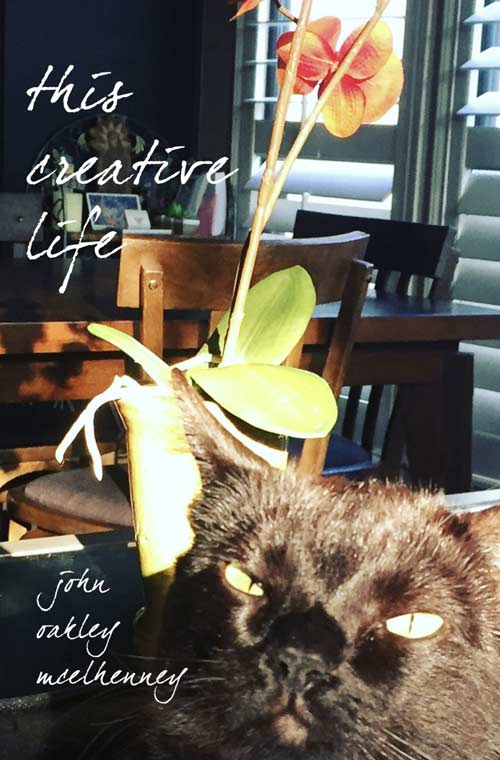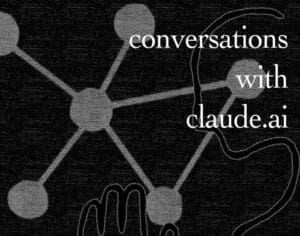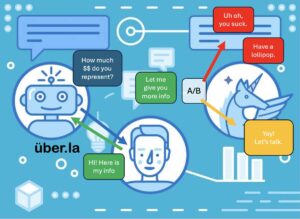If you pay attention to the news, this week Taylor Swift fakes flooded Twitter and caused a huge social backlash from TayTay fans. (Man, I hope they don’t dig any deeper into dark fakes, they will lose their minds.) And even here, in my own little patch of the world, in Austin, Texas, *ai* is having an impact on all of our lives. As we say, “AI isn’t going to take your job, a human that knows how to “prompt” *ai* is going to take your job.”
In dutiful fashion, I’ve been carrying on several *ai* inquiries.
MUSIC & AI
I have been experimenting with an AI called LALAL.AI. It can ingest any MP3 song and produce relatively good STEMS. Or, in layman’s terms, make karaoke versions of your favorite songs so you can sing along with the original band. Cool. This tool also allows you, with some success, to extract just the drums (90% positive), just the bass (70% positive), only the vocal (95% positive – amazing what you can hear of the effects and production of fantastic lead vocals without the music), and other instruments electric guitar (50%), acoustic guitar (45%), piano 60%), and synths (50%).
I have created a genre I call Radio No Head. My first song was Decks Dark by Radiohead (you might know it from the final scene in Ozark episode 1). I’ve taken out Thom Yorke (god bless him) and revivified the STEMS from LALAL.AI. And what I’ve produced is a satisfying (to me) instrumental version of a Radiohead song I know and love. Thus Radio No Head. So you can imagine and create your own song with the best bands in the world.
MARKETING & AI
Another thread I’ve been pulling is Generative Ai Video. This is a bit more choppy. I’ve started collecting a few “for social media channels” promo bits from a platform called Creatify.ai.
The formula is amazingly simple. Feed the platform a URL and it will write a script, let you pick a style and an avatar. And then the amazing part, *ai* renders a young person talking enthusiastically about your product, story, song, and poetry. The fakes use many terms like “trust me” and “life-changing” that make me feel uneasy. Nothing like the TayTay fakes going around, but still, BIG LIES.
[And today’s creatify experiments were both failures. Here’s a young man with an accent and terrible pronunciation talking about my sci-fi book Hyper:Soul. And a young woman talking about my poetry book waltwhitman.ai (which actually has no *ai* in it.)
Do we think advertising is true? Is it okay for advertising to fake personal stories, endorse questionable products, and sell on “trust” and “personality?” We, technically yes. In practice, I’m a bit worried about the nefarious uses of this platform.
CREATIVITY & AI
Finally, my exploration in the beginning has been at the heart of the *ai* process. Is AI creative? Or, as I believe, is AI simply a huge and capable “mimic?”
I’ve been having conversations with the main LLMs with ChatGPT, BARD, and Claude. And they each have a flavor to their responses. BARD of course uses the unlimited web as a source (hence the lawsuits starting to pop up about copyright.). I’m playing a bit with some open-source AI tools as well, on huggingface.
My point is this: a creative leap takes a vast amount of human experience added to a spark of inspiration. For example, if I mention the word “loss” to you as a human, immediately your brain chemically reacts and locates your human experience and human connection to the word. What stories come up for you are YOUR HUMAN EXPERIENCE. An AI has nothing but binary data to work from. Try as it may, accessing as much of literature and written essays, AI cannot comprehend the human experience of loss.
Tangent: but it can get really close to making you believe it understands. I have an experience in my Conversations with Claude, when I mention my recently deceased mom, and Claude responds with some tender gobbledygook that sounds like comfort and empathy. It’s a pattern. It’s a series of numbers and words scrambled together from all “lost my mom” data within the LLM of the specific AI. While it did trigger an emotion in me, it felt odd, hollow, and false. It does point to the real world of AI therapy and counseling, already a flourishing industry.
THE POETIC HUMAN
My premise about *ai* creativity vs human creativity has to do with poetry. In poetry the rules we’ve all learned about syntax, punctuation, and language become mixed up, subverted even. One of my early “stump the ai” tricks was to ask ChatGPT to write a “free verse poem” about… It continues to fail. Even when you point it out, the *ai* says, “Oh, you are correct, thank you for the clarification, here’s a ‘free verse’ poem.” And more often than not, it will still rhyme the lines.
It’s a bit like our human brain. When we have a routine or a habit (drinking coffee in the morning, for example) our neural pathways are strong and well-lubricated as we get up in the morning, coffee is on our mind, our desire for coffee can get us out of bed, and the smell of brewing coffee brings some of our core human functions back online. That neural pathway is strong and robust.
The “path” or “impulse” to have a tall glass of water first thing in the morning, however, is less primed. The water-pathway is more of a dusty mountain goat trail. The coffee-pathway is an intercoastal freeway. Our brain and then our bodies will tend to find the big lovely highway, leaving the goat path for extraneous circumstances, with instructions like “drinking water first thing is the morning is good for your overall health.” The human brain makes the choice the minute our eyes are open. Coffee or Water? And it is only with great effort that we can delay our coffee and go with a glass of water.
Same idea with the two variations of POEM. The highway in most LLMs for “poem” is rhyme. And even adding the modifier “free verse” to the mix often does not override the more common “poem” data that rhymes. I mean, POEM = RYHME, right?
So, I have an idea for breaking down the language rules in an LLM that has no common English syntax, only free verse poetry, like the entire book of Walt Whitman’s Leaves of Grass. Let’s have the *ai* chew on those patterns for its responses. What will the poem look like with that model? And how will it form complete sentences if we just ask, “What color is the sky?”
WHAT IS CREATIVITY
In my definition, creativity is a human expression of SOMETHING. A visual. A meditation on the word “loss.” A painting of a feeling. The taste of a song. These are human ideas that *ai* will never be able to synthesize.
Rachel in Blade Runner is a great example of how far *ai* technology can go. She had implanted “human” memories that gave her *ai* a more human-like response to incoming experience and a human-like response. She even appears to have emotions when she learns she may not be a human.
Does poetry matter? Does shattering the current patterns of written language, and a lot of it, hold any promise for creating responses that are little more than word soups? I don’t know. Can an *ai* be trained on free verse poetry and then be asked to evolve their skills towards some other form of connective pattern recognition and transformative and generative language? And is language even the best system for understanding and evolving *ai*?
Mentioned in this article:
waltwhitman.ai < a book of “whitmanesque poetry” with zero AI
Radio No Head < *ai* parsed music for you to sing and dream with
poətic.com < my page about the ai poetry conundrum
hyper-soul < the science fiction exploration and world-building project
clickthis.ai < my team for *ai* marketing and sales acceleration
Go out, and play with the *ai* of your choice. See what you learn. It is an amazing time.
John McElhenney — let’s connect online
Facebook & LinkedIn & The Whole Parent
Please check out a few of my books on AMAZON.





